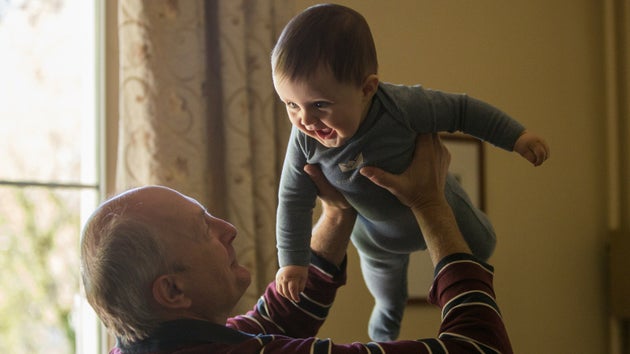
Venting
to Mumsnet
A member shared an opinion that resonates with numerous parents on the internet; they are “upset about grandparents not assisting with childcare,” and experience disappointment due to the absence of a supportive community.
In an independent TikTok clip, a young mother posed this question: “Could it be that childcare expenses are sky-high due to fewer grandparents being willing to take care of the children?”
In response to that video, a Gen X grandmother stated: “The issue isn’t that grandparents aren’t keen on watching their grandchildren; it’s that many of them are still employed full-time.”
And according to
gerontologist Athena Chan,
she’s right.
Today, grandparenting appears “substantially different.”
Today, grandparenting appears “substantially different.”
In an interview with HuffPost UK, Chan stated: “Being a grandparent in 2025 has changed considerably compared to what Baby Boomers went through” — primarily because today’s grandparents might still be engaged in some form of work rather than being fully retired from a one-earner household like previous generations’ ancestors were.
“According to the
National Survey of Grandparents by AARP
According to her statements, the youngest grandparents nowadays are approximately 38 years old, with an average age of 50 when they become first-time grandparents.
” numerous grandparents nowadays are still in their peak working years,” and this statement holds true even before accounting for additional factors.
Retirement is increasingly occurring at older ages.
“This transition challenges the conventional view of grandparents as retirees with lots of spare time,” Chan stated.
Boomers and Gen X remember their grandparents as retired, financially secure individuals who were able to spoil them, but this description doesn’t often apply to how they see themselves.
Next, we have the aspect of location to take into account.
Although “weekly visits continue to be a normal part of life” for people who reside near their grandchildren,
older offspring often reside at considerable distances.
From their parents themselves.
Proximity
has declined more
For moms more so than dads, too.
Therefore, “as geographical distances grow, Baby Boomers are relying on smartphones and video calls to maintain emotional connections,” Chan mentioned additionally.
The specialist mentioned that numerous grandparents are doing their utmost.
The specialist mentioned that numerous grandparents are doing their utmost.
Certainly, some grandparents may just not be interested in their grandchildren’s lives – which is unfortunate and can make things quite challenging.
However, many individuals are doing their utmost within the same challenging economic landscape we’re all navigating, according to Chan.
Chan illustrated this with a 70-year-old grandfather who continues to work part-time. He derives great satisfaction from assisting his granddaughter, especially since she is managing life following her parents’ separation.
“He mentioned that he assisted her with buying crucial household items for her newly acquired house, keen on making sure she had everything required to begin anew,” she noted.
This transformation in how grandparents participate underscores the evolving nature of familial relationships. The Baby Boomer generation was raised when most grandparents were typically retirees, enjoying financial stability and ample free time.
Contemporary grandparents are more engaged and dynamic, juggling careers, childcare duties, and economic challenges. Despite these demands, they consistently prioritize the welfare of their grandchildren.
She stated, “The essence of being a grandparent remains the same; however, the way grandparents support their families has transformed.”








